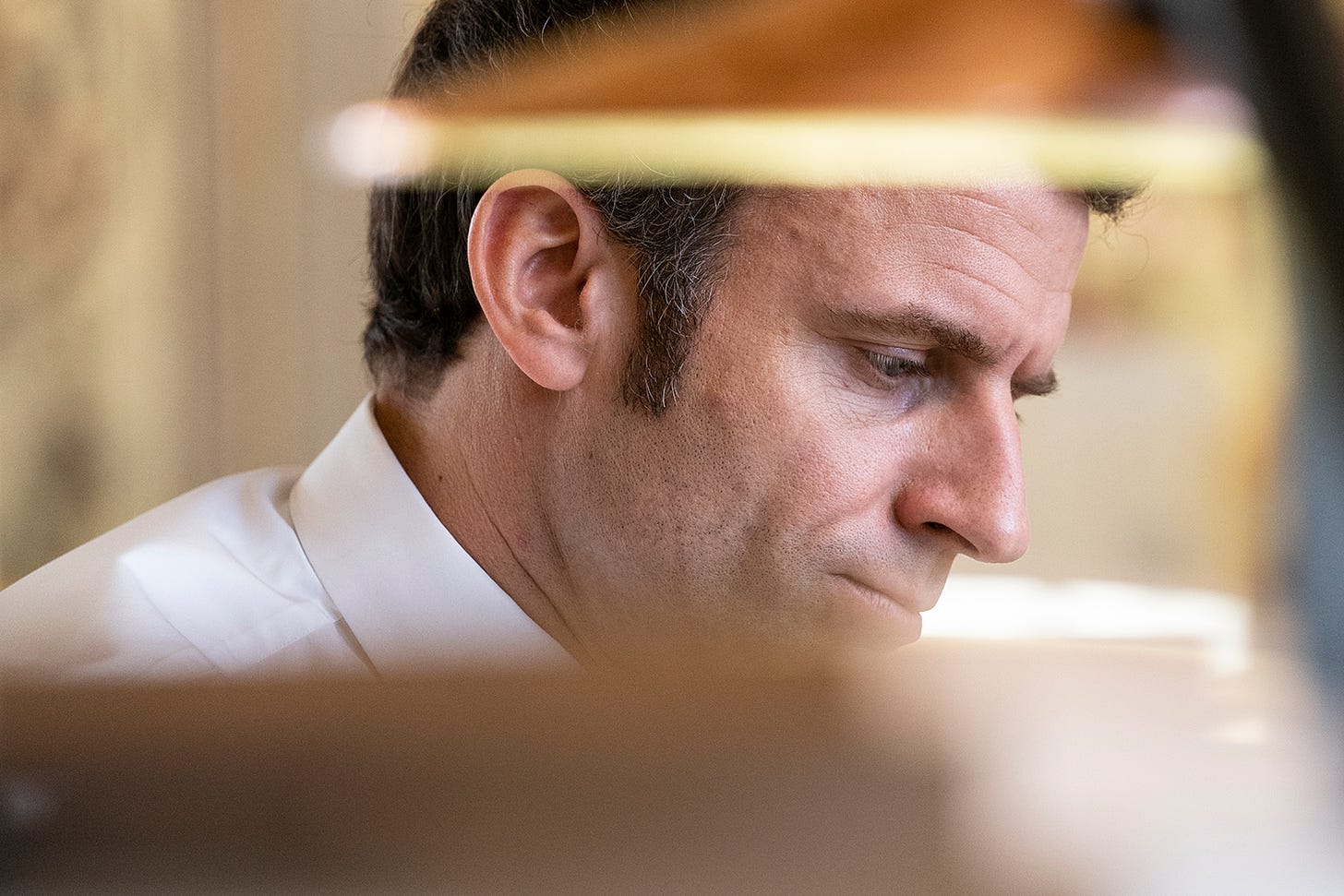
Regular readers will know I’m a fan of Emmanuel Macron. He is probably the most liberal president France has had since the Second World War.
Macron abolished a left-wing wealth tax that raised little revenue, eased regulations on small and medium-sized businesses, reined in generous salaries and pensions at the state railway, relaxed France’s strict labor laws and extended unemployment insurance to the self-employed. This week, he unveiled plans to build up to fourteen nuclear power reactors by 2050 to free France of fossil fuels.
If he is reelected in April, Macron would have a chance to reform France’s bloated retirement system, something none of his immediate predecessors dared for fear of inciting protests.
The one area in which Macron has been unwilling to challenge French orthodoxies is trade.
French veto
The European Commission, with support from smaller member states, thwarted Macron’s push to relax EU competition rules that prohibited the merger of Alstom and Siemens. But he has been successful on other European fronts.
The EU agreed to appoint a “trade enforcement officer” (a Frenchman, of course) who must monitor other countries’ compliance with EU trade agreements.
Macron has vetoed an EU trade deal with beef-exporting nations in South America, arguing they must do more to stop the deforestation of the Amazon. The lack of progress is a relief to France’s own meat industry.
Trade deals with Chile and New Zealand have been put on the back burner.
Priorities
Macron’s priorities for the French European Union presidency (which rotates among member states every six months) are:
Collecting a carbon tax at the EU border that would raise the price of imports from countries with looser pollution rules.
Restricting food imports from countries with lower environmental, food-safety and labor standards.
Demanding reciprocity from trade partners in public procurement.
Arguments for
There is something to be said for each proposal:
The EU is embarking on the world’s most ambitious carbon-cutting agenda. Without a border tax, companies could outsource polluting industries and import the products back to Europe.
No one wants to weaken food-safety regulations in the wake of COVID-19, which may have jumped from animals to humans in a Chinese seafood market. Farmers in Europe are held to the highest standards in the world, which raises the price of their produce.
European governments generally allow non-European companies to bid for public tenders whereas the United States favors “made in America”.
Arguments against
But there are also reasons to be cautious:
A carbon border tax could stifle economic development in exporting countries.
I don’t think it’s Europe’s responsibility to grow other economies, and I think the pros in this case outweigh the cons, but Macron is also Europe’s leading champion of closer relations with Africa, where some governments will see this, and the next, proposal as protectionism cloaked in save-the-world rhetoric.
Europe already protects its farmers and food more than any other country or trade bloc, and then subsidizes farmers to make up the price difference.
Do we really need even stricter rules?
Most public transport and utilities in the EU are governed-owned or -controlled, and of all European countries France has probably done the most to prop up its manufacturing industry with public contracts.
If we insist the Americans consider bids from European defense contractors and train makers, they may want to take a closer look at the many ways in which the French state supports companies like Airbus and Alstom. Be careful what you wish for.



